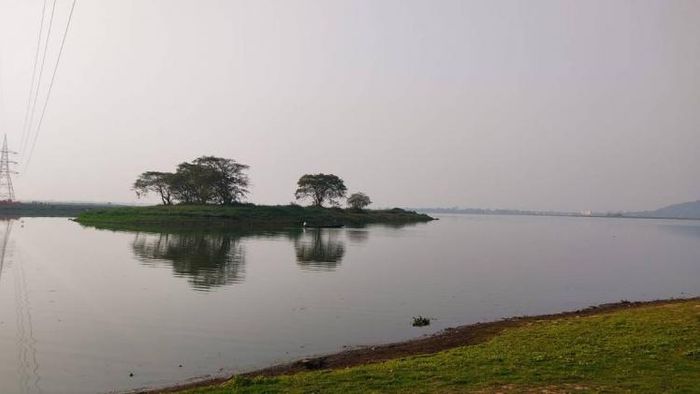Higher dissolved solids and concentration of heavy metals in Deepor Beel: Reports
Higher concentration of heavy metals also has been a major concern for environmentalists and locals residing beside the Ramsar site. Migratory birds thrive at sites and various types of amphibians are also found at Deepor Beel. Locals beside the site also depend upon the beel for its resources like fish.

- Dec 24, 2022,
- Updated Dec 24, 2022, 6:17 PM IST
A National Test House (Northeast Region) report states that total dissolved solids in the water of Deepor Beel are higher than the acceptable limit. While the acceptable limit is 500 mg/l. The test found 545mg/l in the waters of Deepor Beel.
Readings above 500 mg/l require further investigation for toxic particles and heavy metals.
Moreover, the turbidity level in the waters of Deepor Beel is 45.9 NTU while the permissible level is 1 NTU. The total alkalinity of calcium carbonate is 300 mg/l. Acceptable level of which stands at 200 mg/l.
Higher concentration of heavy metals also has been a major concern for environmentalists and locals residing beside the Ramsar site. Migratory birds thrive at sites and various types of amphibians are also found at Deepor Beel. Locals beside the site also depend upon the beel for its resources like fish.
Various studies from time to time have raised alarm on the location of the GMC dumping site situated near Deepor Beel. GMC dumps every kind of waste generated in the city at the dumping ground which in a way jeopardizes the health of the Ramsar site.
Current Science- a scientific journal in its study, “Higher concentration of heavy metal in surface water and fish near a municipal solid waste dump (MSW) in Guwahati” noted that precipitation infiltrating the solid wastes disposed on land mixes with the liquids trapped in the crevices of the waste and leach compounds from solid waste. The discharge of potentially toxic heavy metals from the leachate into aquatic ecosystems poses a serious threat because of their toxicity, persistence, bioaccumulation, and biomagnifications in the food chain.
The study further said that analysis of surface water and fish tissue samples collected from various points near the MSW dump site revealed that continuous mixing of leachate with beel water had a deleterious effect on the water quality and fish in its vicinity.
“The heavy metals are found to occur in decreasing concentrations of manganese (Mn), Zinc (Zn), Chromium (Cr), Nickel (Ni), Copper(Cu), and Cadmium(Cd) with increasing distance from the source. This confirms the gradual spread of heavy metals from the MSW dump towards the wetland,” the study said.
The study also found a concentration of Mn, Cr, Cd, and Ni in the surface water of the beel was found to exceed the maximum permissible concentration.
“Water of Deepor Beel has worsened day by day. Many studies over the years are bears testimony to this fact. I have always vouched for a proper study on the Ramsar site,” Environmentalist Jayaditya Purkhayastha told India Today NE.
The state government due to the delay in setting up of solid waste management plant at Belortol at Paschim Boragon over the years has drawn flak from many quarters.
However recently, the Gauhati High Court taking suo moto cognizance of case number 3/2017 directed the state government to commission the plant by July 2023.
“The respondent authorities, including the chief secretary of the state of Assam, has brought on record the fact that the government of Assam with the help of IIT Kharagpur decided to have a plant for scientific disposal of solid waste at Boragaon dumping site and Guwahati Municipal Corporation (GMC) was directed to execute the same,” a bench headed by Chief Justice RM Chatya and Justice Soumitra Saikia noted.
By an affidavit dated December 9, GMC stated that the construction of compost and RDF plant of 150 TPD at Belortol for a contract value of Rs. 30,91,80000 to M/s Geron Engineering pvt. ltd. The GMC further stated that the plant would be like commissioned in June 2023.
Also read: Assam government announces Rs 973 crore worth developmental projects for Dibrugarh